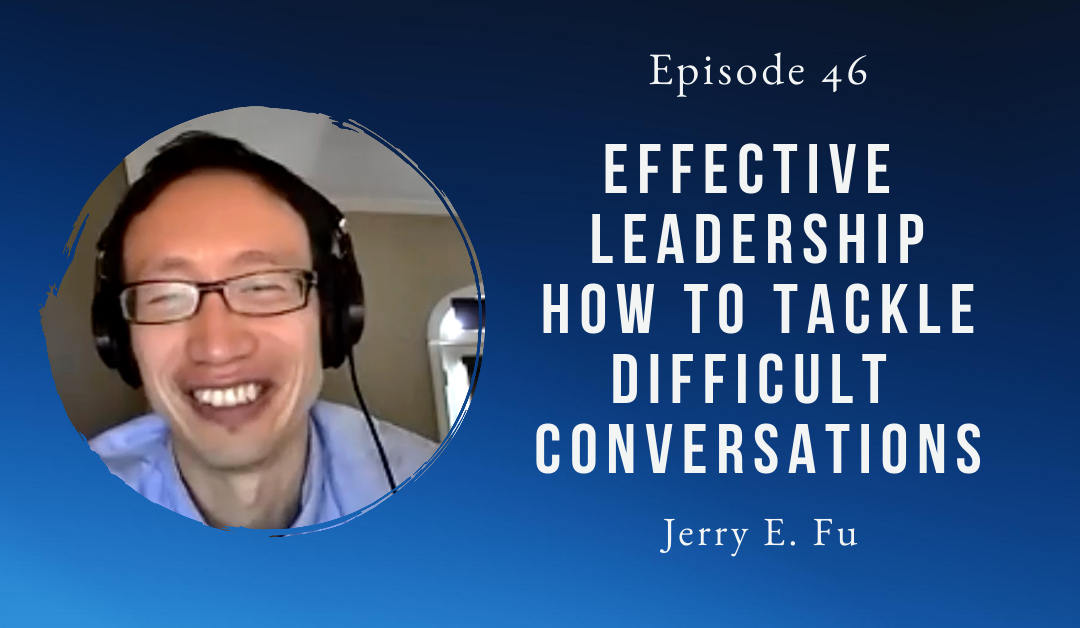Episode 46
Effective Leadership – How to Tackle Difficult Conversations

Difficult conversations are inevitable in any organization. They happen every day, and they are often unavoidable. But most leaders aren’t trained to handle these situations effectively.
Leadership is not just about being nice and polite; it is about making tough decisions and dealing with conflict. It takes courage and strength to make unpopular choices, especially when others disagree with you. This is why it is important to learn how to have difficult conversations.
Host
Sannah Vinding
Guest
Episode
E46

Know your audience

Prepare for the difficult conversation

Set boundaries
You always have to look and say, how am I learning and how am I growing from this experience.
Difficult conversations are those where there are strong emotional reactions involved. They require you to engage in active listening, rather than just waiting for someone else to speak. You must pay attention to what is being said without interrupting while trying to understand how it affects the person speaking. This requires patience and empathy.
There are different types of difficult conversations. Some are easier than others. An example of an easy conversation is one where both parties agree on the outcome. In contrast, a crucial conversation is defined as one between two people who disagree on something important. Such discussions can become heated and involve intense feelings. Crucial conversations often occur when people feel threatened.
If you want to lead effectively, you have to be able to handle tough situations when they arise. This means being able to listen without judging, empathize without agreeing, and resolve conflicts without blaming. These skills will serve you well in any situation, but especially in leadership roles where you may find yourself dealing with conflict.
Jerry E. Fu

Jerry E Fu
Founder & Owner - Adapting Leaders
Founder, Conflict Resolution Coach for Asian-American Leaders, Certified Leadership Coach, Diversity, Equity, and Inclusion (DEI) consultant, Keynote Speaker, Leader Developer, Employee Research Group (ERG) speaker,
Related Episodes
How to Turn Industry Trends Into Actionable Supplier Strategies with Heather Fulara, VP at DigiKey – Episode 118
Learn how DigiKey’s Heather Fulara turns trends into supplier strategy, builds trust, and leads with data, curiosity, and clear communication.
How the Shift from Manager to Director Changed My Leadership Style – Joshua Nix Supplier Management Director at Mouser Electronics – Episode 117
Joshua Nix, Director at Mouser Electronics, shares how his leadership style evolved from manager to director—and why mindset, trust, and curiosity matter more than titles.
New Episodes
Bi-Weekly Tuesday







